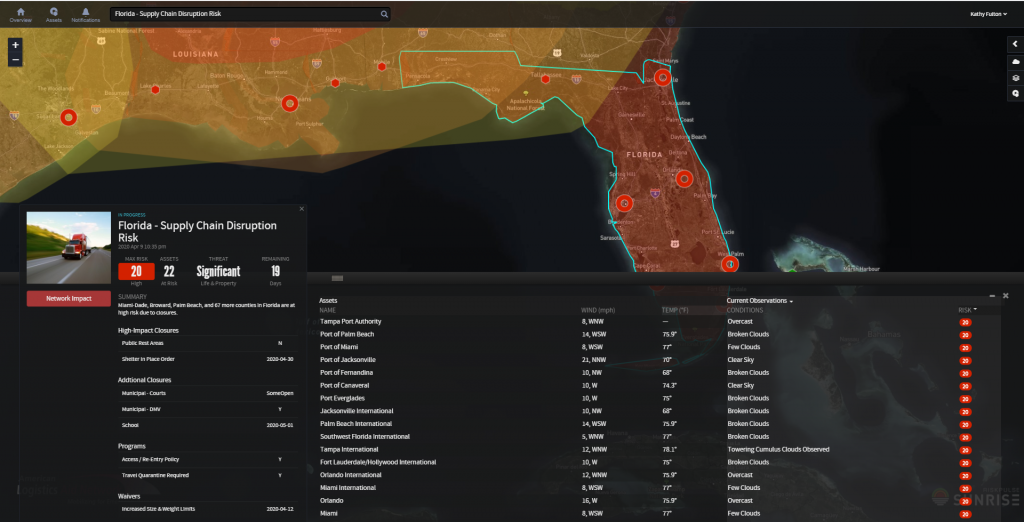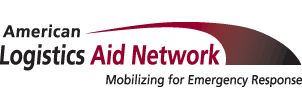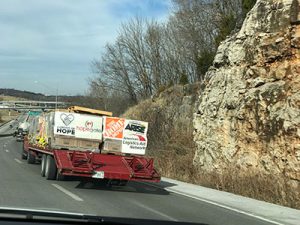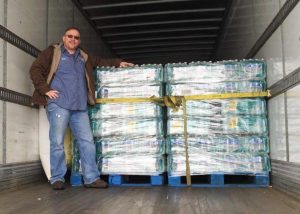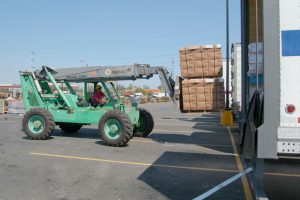If you’ve learned anything at all from reading my blog, it’s to expect the unexpected. After all, over the past two years I’ve treated (or should I say, subjected?) readers to everything from a variation of my Grandma Jo’s favorite recipe to stories about my short-lived career as a magician.
As a result, it probably won’t surprise you to hear that I’d like to do something different with this month’s piece.
Simply put, I’d like to share this “just the facts” ALAN operations/COVID-19 situation report with you.
Unlike most of my previous writing efforts, it doesn’t come wrapped up in a nifty theme, entertaining headline or humorous ending. But it is full of lots of practical information about how we’ve been working to help with pandemic relief and response.
I hope you’ll find it helpful. More important, I hope it will inspire you to continuing to do what you can to help ALAN and other disaster relief organizations deliver help and hope more quickly.
Stay safe. Stay well. And stay in touch.
Kathy Fulton
Executive Director
American Logistics Aid Network
ALAN’s COVID-19 Operations Report
Mid-April 2020
ALAN works to “Save Lives Through Logistics” in four key areas. Specifically we:
- COORDINATE: Facilitate movement of commodities to support affected populations
- EDUCATE: Use every interaction with business, government, and nonprofit partners to advance understanding of supply chains and how they function in crises
- INFORM: Support analysis of the health of pre-existing “blue sky” supply chains; and provide ease of access to information about the current logistics/supply chain operating environment
- CONVENE: Host cross-industry conversations to identify common issues and advocate for the needs of the entire supply chain
During the COVID-19 pandemic, ALAN has been actively working in all four of these key areas to help make a difference in our communities:
- Through our COORDINATE program, we are matching logistics solutions with non-profits that are providing food, shelter, medical care and more. Cases in progress and completed cases can be found on our Disaster Micro-site (https://www.alanaid.org/operations/), as can many helpful links. Thank you to the many businesses who have already stepped up to provide in-kind support for this work. And a HUGE THANK YOU to our amazing group of volunteers who are making these connections happen. (Watch for more personal thank yous on our social media channels in the coming days.)
- Our EDUCATE program, which usually involves a fair amount of travel and speaking engagements at industry and educational conference, is mostly quiet right because of social distancing requirements. However we have recently participated in two COVID-19 webinars, one with CSCMP (https://education.cscmp.org/p/alan) that’s available to its members and one with Resilience360 ( https://youtu.be/IE9QDxk2ZzE). We are also in the early stages of our work with the University of Tennessee for its supply chain resilience project for DHS. We’d love to have your support for that work by taking a brief survey (https://disastersupplychain.questionpro.com). And as always, we are busily participating in industry and mainstream media conversations to help raise awareness of the latest pandemic concerns and repercussions. (In case you’re interested, you can check out the results of some of those conversations here: DCV, NPR, JOC, Freightwaves).
- Our CONVENE program is focused on supporting our industry association partners and the needs of their members, which is why we’re currently hosting weekly calls to discuss common issues. Check with your respective industry association about the information that’s being shared on these calls.
- Finally, there’s our INFORM program, which is currently two-pronged: supporting analysis of supply chains and freight flows; and a partnership with Riskpulse to deliver actionable data to speed delivery of commodities during crisis. Along those lines, we have just launched the Supply Chain Intelligence Center, which offers a cloud-based, real-time view of the latest COVID-19 impacts via an easy-to-use map. This project also would not be possible without our financial backers and the team of volunteers ensuring that you get the most up to date information available. Access to the map, which includes the status of roads, ports and airports as well as policy changes at the national, state, local and county levels, is available at alanaid.org/map
